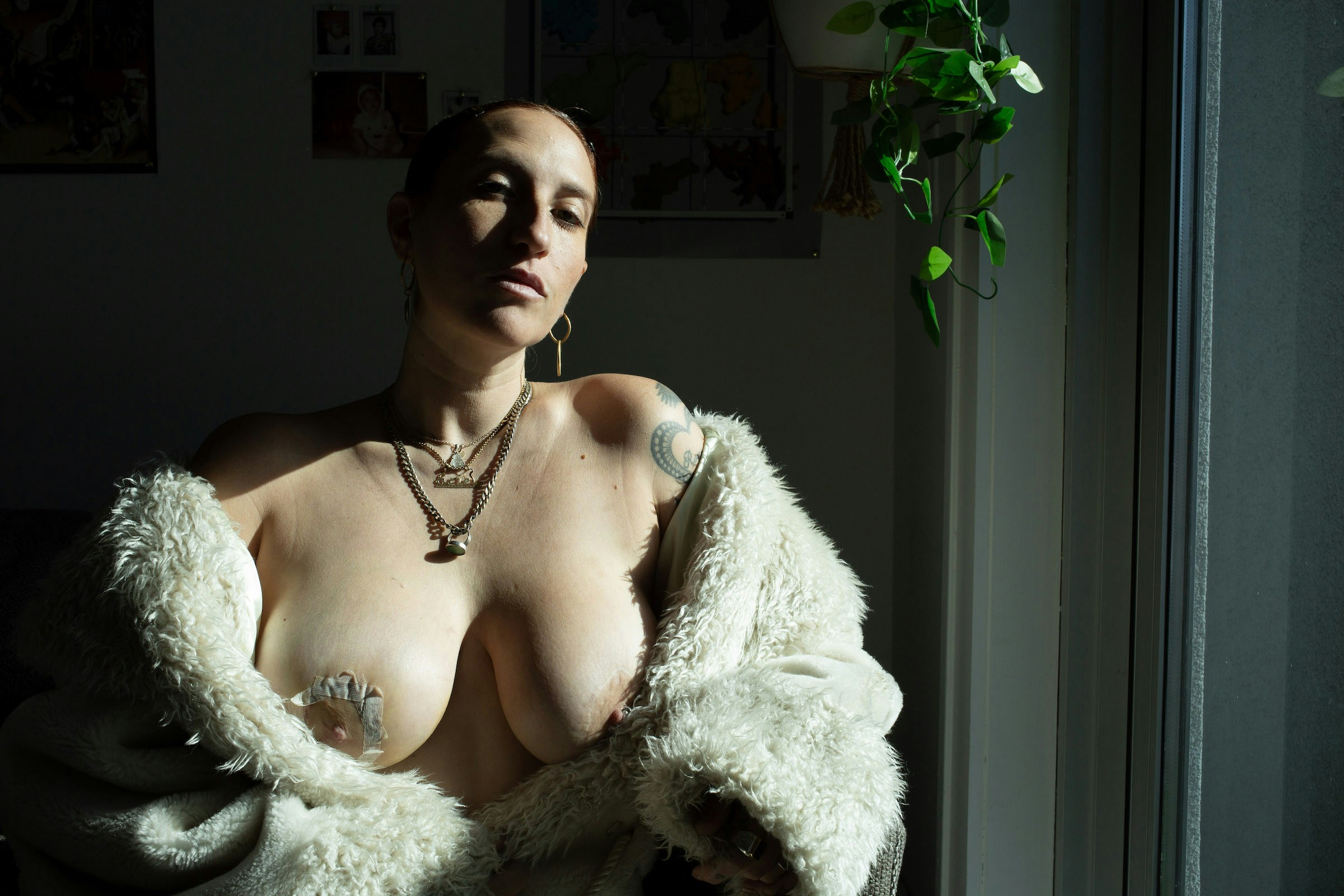
Getting Sticky With Abbe Ertel Magid & Randy Stulberg
Words by Anamaria Glavan, Photos by Randy Stulberg
A picture may be worth a thousand words—but what’s that worth in a world where everyone looks the same, polished to perfection? The answer, perhaps, lies in pushing the envelope. In choosing to document the quiet moments that speak the loudest, to shine the spotlight on the tough experiences that lead to real-life growth.
That’s the energy behind the creative collaboration between Abbe Ertel Magid and Randy Stulberg, a testament to the healing power of photography.
Seven years after Randy Stulberg first photographed Abbe Ertel Magid—capturing the quiet, intimate fullness of her pregnancy—the two longtime friends and collaborators came together again. This time, the camera turned toward something far more layered: the emotional and physical aftermath of a breast cancer diagnosis at age 39. Post-treatment. Post-surgery.
Below, a conversation between Abbe and Randy. A reflection on what it means to inhabit a body that has both birthed and battled and to feel, somehow, more grounded and grateful than ever.
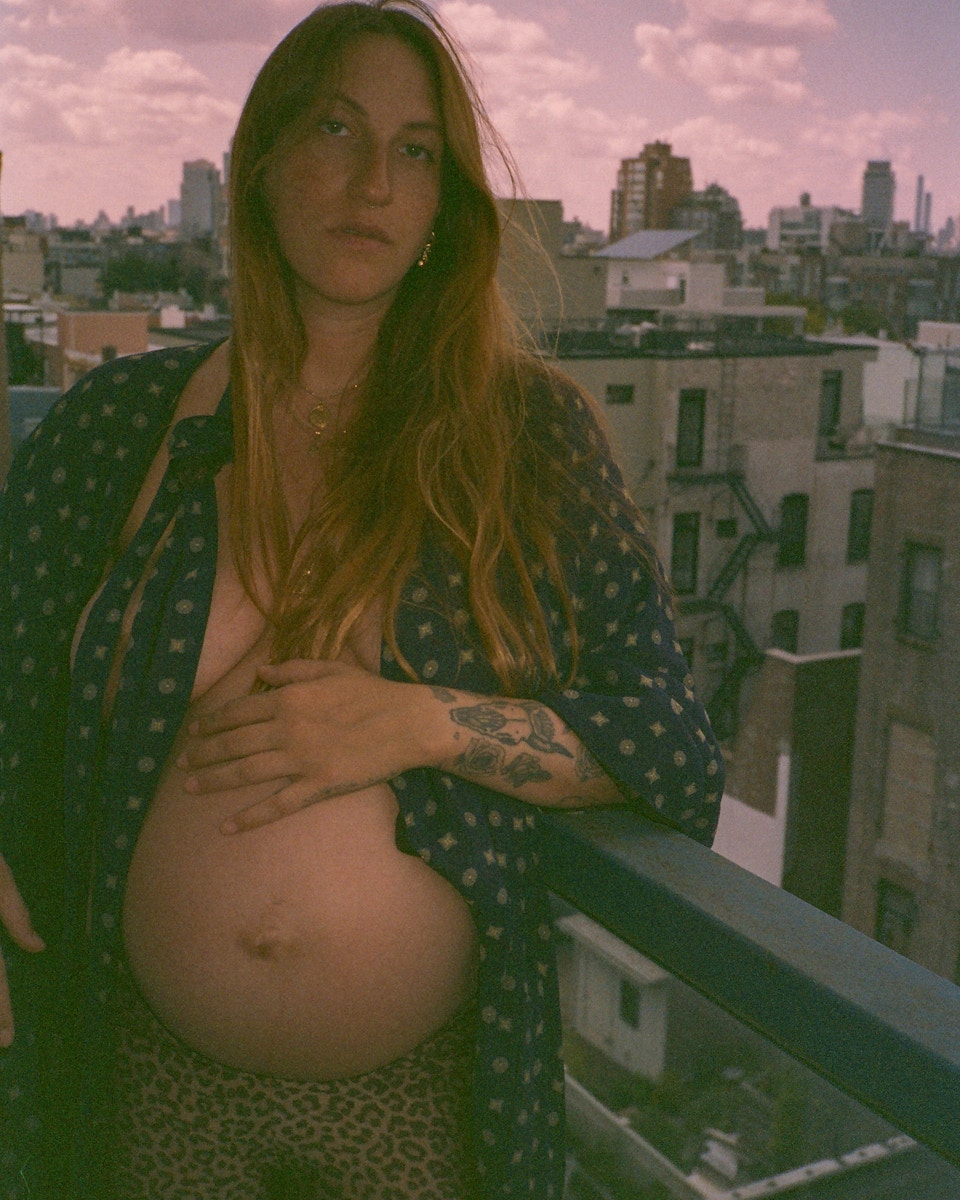
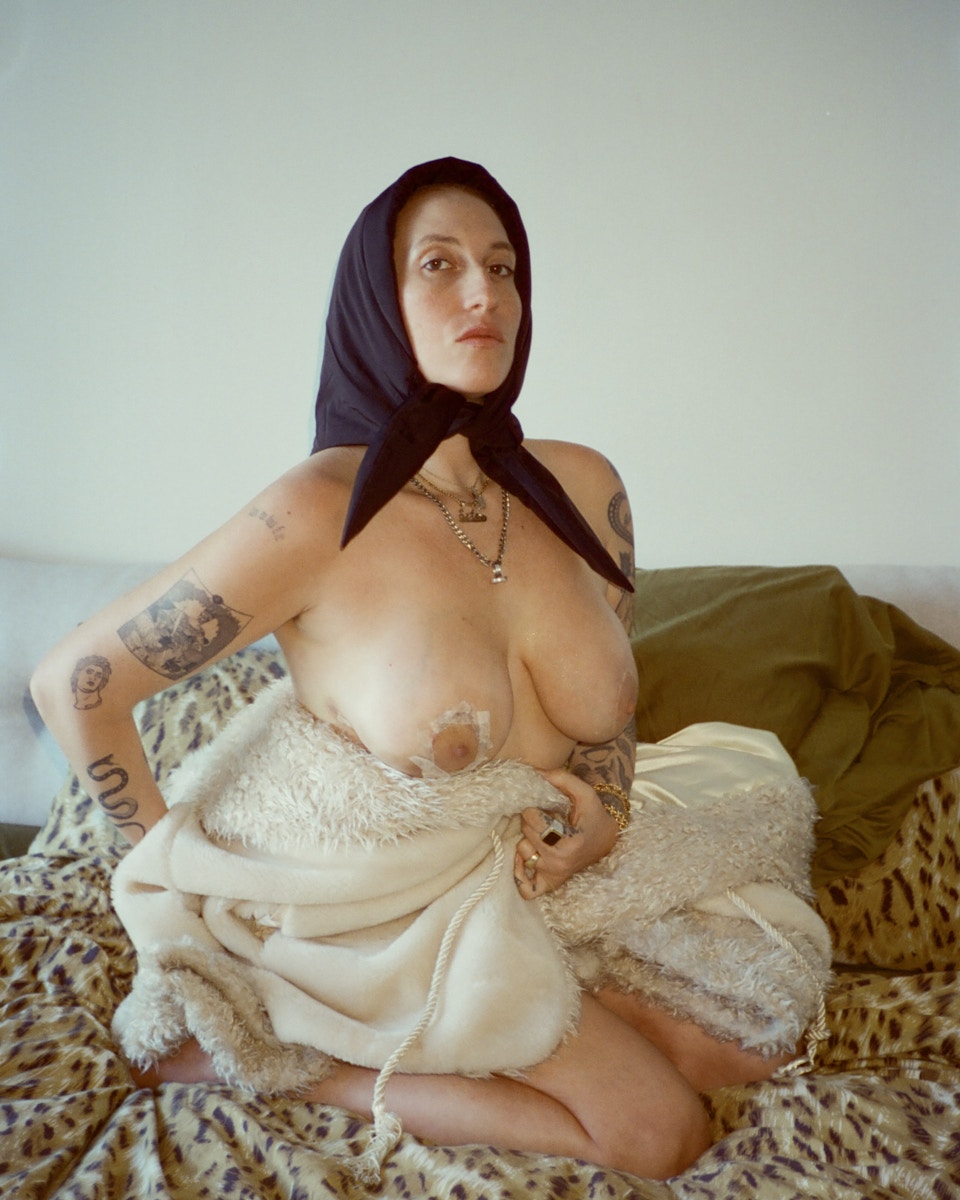
Abbe Ertel Magid: These past five years, I got divorced, had cancer, and then my dad died. And through all of it, I was just like, I'm fine. I'm fine. I'm fine.
Looking back, especially at the version of me before cancer, I used to think everything was easy. I had this teenage sense of invincibility. But now I realize that was kind of a persona. Underneath all that was vulnerability, fallibility, and mortality. And oddly, that feeling has been an amazing gift. That time of excitement, of wanting to meet my kid, also marked the end of my marriage. I think on some level I sensed that things were never going to be the same.
When I found out I was sick, I knew I had cancer before I knew exactly what kind. There were a few weeks in between, and in that time, I experienced this strange combination of presence and euphoria. I didn’t know how bad it would be. Would I lose my hair? Would I still be able to go to the beach? Would my kid see me really sick? I had no idea. So I chose to stay present and grateful.
He was in Pre-K then, and every day I picked him up and said, We're going to the candy store. The playground. The movies. I wanted the world to feel as fun and full as possible for both of us. I didn’t know how much time I had, and when people would say, Wow, you two seem like you're having a blast, I’d say, We are. It was real. And when I did find out I’d be okay, it wasn’t like I wanted to go back to being terrified. But I did take with me this deep sense of presence in every single moment.
My cancer was hormone receptive so I was placed in medical menopause. New York State is legally required to offer fertility support for people rendered infertile by medical treatments but navigating that through insurance was a full-time job. It was constant. The options are confusing, the wrong procedures, endless calls. I have dealt with it every day since I got diagnosed.
I applied for grants from Livestrong, which provided meds, and Chick Mission, which covered procedures. My oncologist helped push it all through. I started fertility treatment that Monday, did one round, got five eggs, and we made one embryo. I was so grateful. And Livestrong gave me so much medication that I was able to donate some to someone else who needed it, which felt amazing. After that, I was put on Tamoxifen. Some people are fine on it. For me, it was awful. It suppresses your ovaries and puts you in menopause. I was crying all the time, having suicidal thoughts. It was really bad.
I called my oncologist and said, I have to get off this. She said, You can stop right now. I did. Within a few days, I felt like myself again. I got off the medication for two weeks and within a few days, I started feeling back to normal. Then I began a new round of treatment—aromatase inhibitors. I get a monthly Lupron shot in my butt at the Perlmutter Cancer Center which essentially puts my ovaries to sleep. Then I take a pill every night that keeps them dormant.
In the beginning, I had major hot flashes. They kind of felt like contractions for me; this insane heat would rise in me and then go back down. It happened a lot when I was feeling anxious or uncomfortable. But since starting the treatment—my last period was in December of last year—it’s gotten way better.
One thing about me is that I tend to push the envelope a little. Being in menopause has made me think a lot about my relationship with trauma. I don’t know, maybe it’s a toxic trait, but I really try to make the best of things. And honestly, I’ve stayed pretty sexy through menopause.
Randy Stulberg: You're so sexy. You're sexier than ever.
Abbe: I feel the same way. Thank you, baby. I definitely feel more within myself now than I did when I was young.
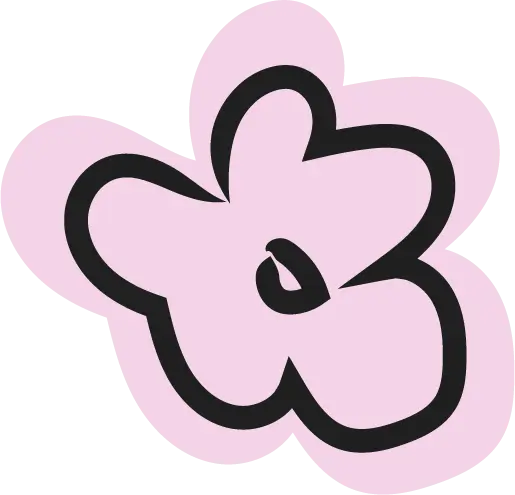
"Being in menopause has made me think a lot about my relationship with trauma. I don’t know, maybe it’s a toxic trait, but I really try to make the best of things. And honestly, I’ve stayed pretty sexy through menopause."
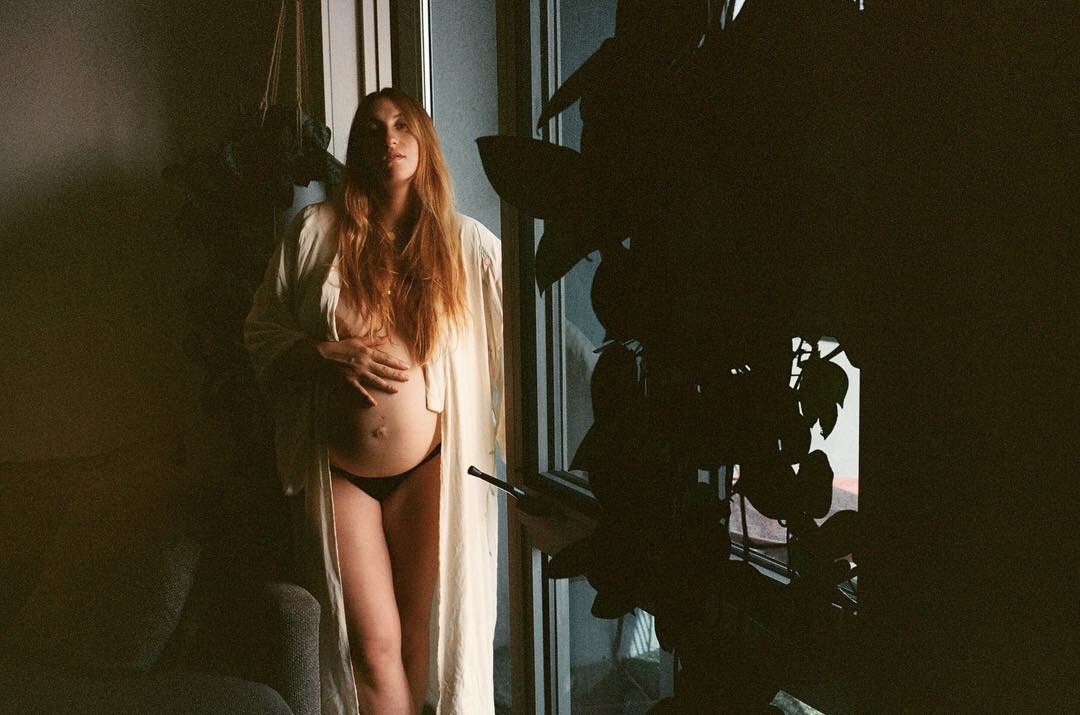
Randy: I was going through a lot around trying to get pregnant. Not giving birth; just getting pregnant. And the way I processed that, the way I tried to heal, was by photographing my friends who were pregnant or trying to be. I asked Abbe if she would let me photograph her and she said yes.
Abbe: What really lives in those pictures for me is what you were going through at the time, Randy. It was a very tender space to be in.
I always believed that something good was going to happen but I also knew there was a lot of loss there. It was incredibly vulnerable of you to want to do that. And I really wanted to hold space for that, for what both of us were going through, while we were making those photographs.
Randy: Making art is always healing in some way. Taking photographs, in particular, is very healing for me. There's something about the surprise of it — it’s like opening a present when I go through my photos. It’s a gift I give to myself, but also to other people.
It’s made me realize how fragile everything is… and what a miracle it all is. That realization made me excited to explore more. I mostly photograph women, nonbinary and queer individuals, and this experience has really energized me to keep going, to keep learning and growing. I am taking it more seriously. Women’s health, women in general — they’re endlessly fascinating to me. Their bodies are so resilient. Abbe is the epitome of that. I want to keep exploring that.
There’s a vulnerability to the work, and I think I’m vulnerable too — especially with Abbe. For some reason, I feel very comfortable being vulnerable around her.
I’ve photographed people from all different backgrounds. But I keep coming back to women. Their bodies are incredible. My process has always been simple, just me and my little Contax film camera. I've been experimenting with flash and digital, taking some classes at the International Center of Photography. Still, I want to keep things intimate.
I call them my girls, the people I photograph, because I want them to feel sexy. Do you know what I mean? I want to bring that out in them. I want people to feel their best or however they are feeling at that moment. With Abbe, I wasn’t trying to make her sexy. She is sexy. She was already feeling that way.
Abbe: Randy had a vision for the shoot, and we were going back and forth on references and ideas. It kind of organically became something with an inherent eroticism, which I think really worked for where we were both at.
That shoot also happened after my second reconstruction. I had one six months after my lumpectomy and radiation. That first one involved implants and a lift, but my radiated boob ended up smaller and higher than the other, which can happen. The skin just reacts unpredictably. That’s why they usually wait six months but even then, mine hadn’t finished doing its thing. I was able to fix it.
I was lucky to go through all of this knowing I’d be okay. And at the end of it, I got to choose what I wanted my body to look like. While my boobs were the thing that got me sick, I also had the chance to decide what they’d be after. That felt liberating. It’s the lemonade from the lemons.
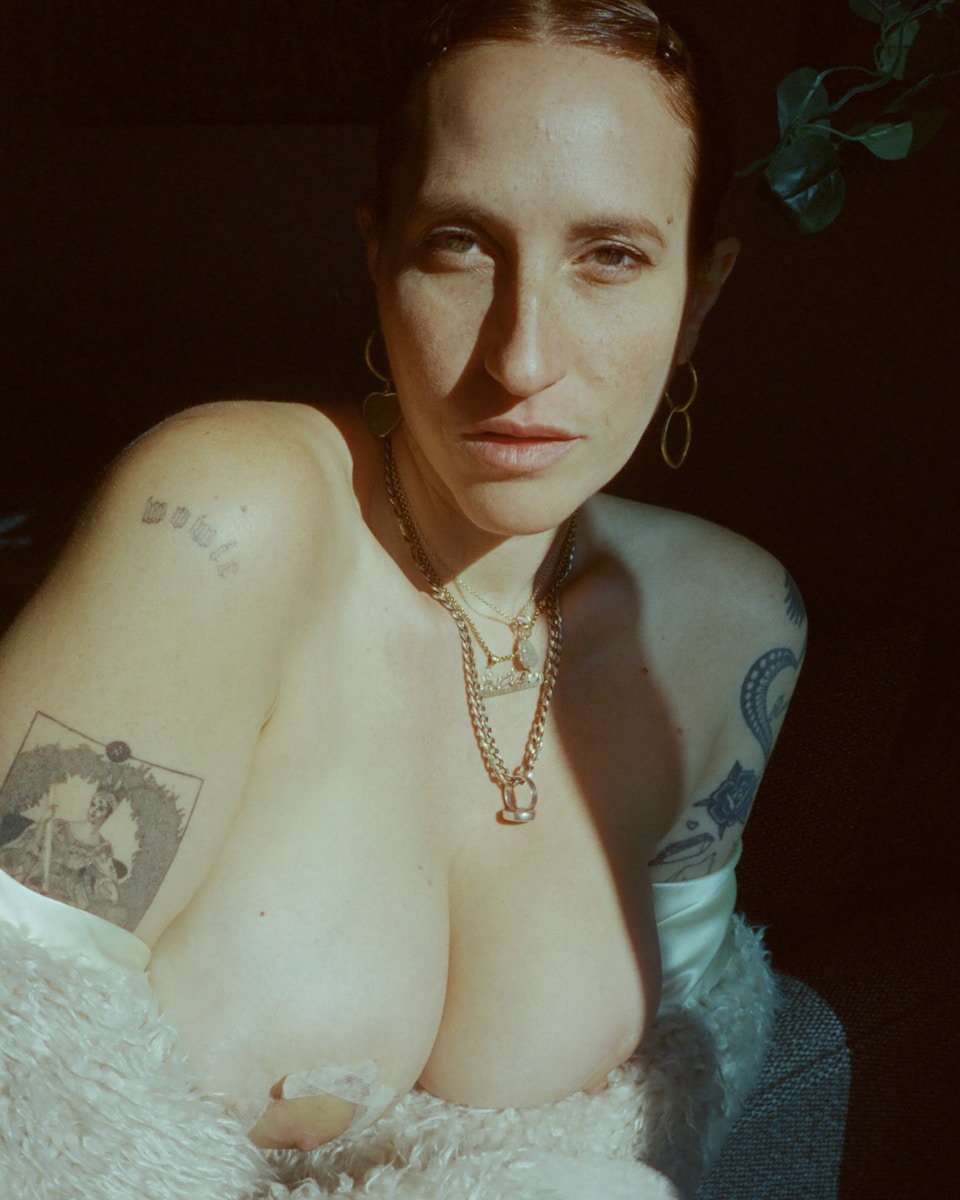
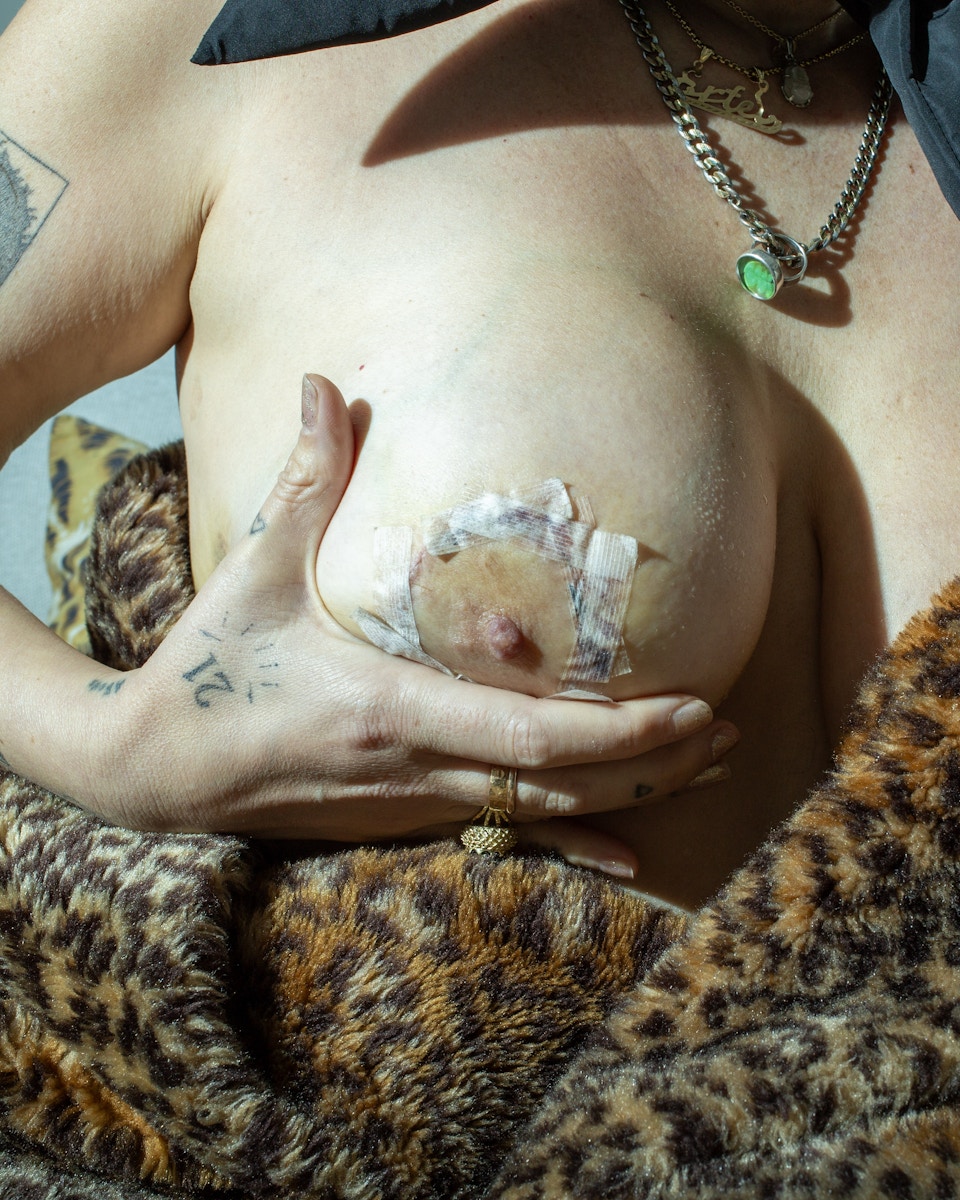
Randy: Exactly. And we were intentional about the shoot. The fashion choices, the lighting, the intimacy of doing it in her home. She invited me in.
Abbe: Randy’s always taking pictures but her work taps into this unexpected femininity in powerful women by showing their more vulnerable sides. I’d thought about doing something like this after my first reconstruction. I later realized this could be something powerful to have in her portfolio. There’s so much human experience in it.
Randy: Totally. My teacher actually said something to me that really stuck. He said, There’s a weird line you ride between the sexual and the strange. And I encourage you to keep building on that. That idea really applies here: this mix of gesture, light, and emotional aesthetic that feels erotic but is also rooted in something serious, something medical or unstable.
I still want to photograph more of the IVF process too. Having a baby is a sexual thing. But when you're going through IVF, you kind of forget that. It becomes clinical. It’s this crazy in-between space.
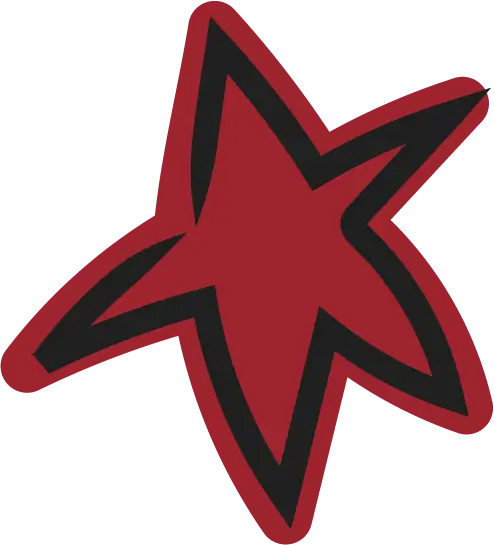
"I still want to photograph more of the IVF process too. Having a baby is a sexual thing. But when you're going through IVF, you kind of forget that. It becomes clinical. It’s this crazy in-between space."
Abbe: I definitely feel a more intimate relationship with my body than I did when I was younger. For many reasons, but mostly experience. Many people look back and think, I was so hot when I was young. For me, it took longer to feel at home in my body. I'm tall, and growing up it was the era of Jenny McCarthy, Carmen Electra, MTV Spring Break—like, babes. And I just was not that at all.
Now I feel really able to be myself. I'm bi, and I’ve always had this vision for how I wanted to express myself through my appearance. I was experimenting and trying different things which was valuable. The experience of being pregnant, of being sick, of starting to care for my body in a new way, all of that changed me. I became a runner in my 30s which really shifted how I felt in my body.
Over time, my body and my feelings toward it have changed a lot. I feel really lucky to be living in a moment where getting older and having experiences is part of how beauty is redefined. When I was coming up in my career, I worked under this amazing boss, and there were so many incredible women—producers, photographers—who were all different in how they looked and what they loved. I wanted to be like them. And I think I’ve become that.
Randy: Women are an endless muse to me. They can capture so many different emotions in their expressions. I find them extremely complex, and I guess I feel this connection because I’m a woman too. It’s layered.
I often photograph powerful women who are willing to play with me. To play dress-up, to play undress-up, to be erotic, to be silly. Not everybody, as Abbe says, is down to clown.
Not everyone is willing to go there. Even Abbe—at one point, she wasn’t. We were supposed to photograph her during IVF and she just wasn’t in a place to do that. And I respect that. It’s a collaboration, always. I usually ask them to look through the shots and tell me what they like and what they don’t. Sometimes we have differences of opinion, but I try to respect their boundaries.
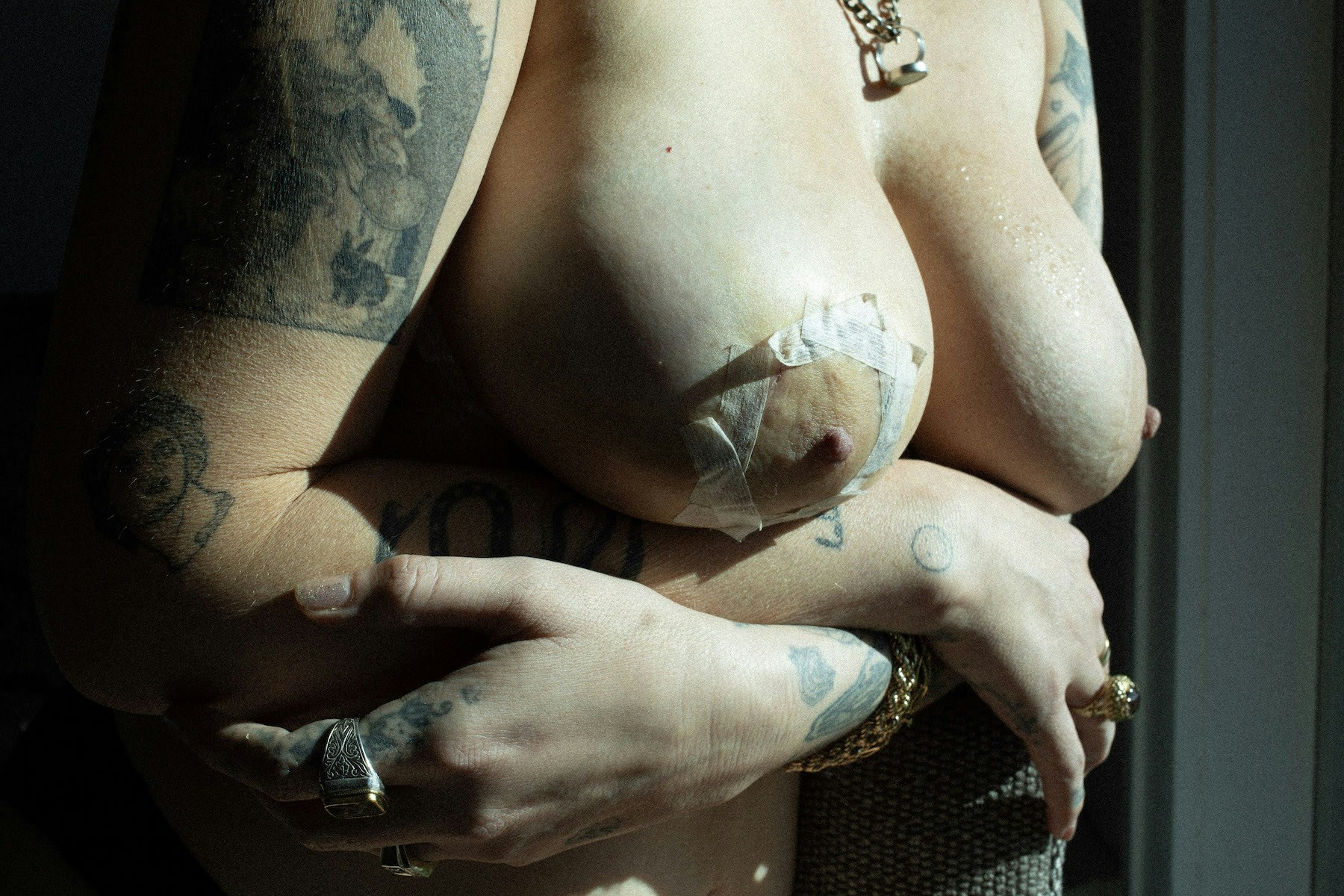
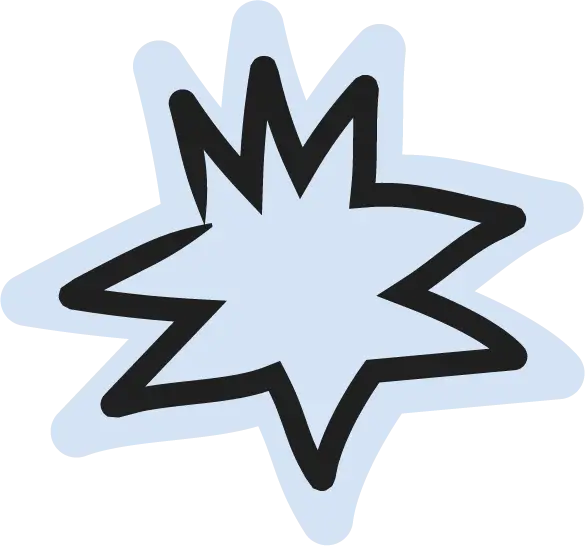
"Over time, my body and my feelings toward it have changed a lot. I feel really lucky to be living in a moment where getting older and having experiences is part of how beauty is redefined. When I was coming up in my career, I worked under this amazing boss, and there were so many incredible women—producers, photographers—who were all different in how they looked and what they loved. I wanted to be like them. And I think I’ve become that."

Abbe: My whole thing with having a kid was that I didn’t want to change. I didn’t want to become someone who made a ton of compromises and then built up resentments. I think I was wrong about this, but for a while, I felt that way about my mom. She stayed home and gave herself to me fully and there was all this pressure on our relationship because of that, and her identity got tangled up in it.
For me, I wanted my kid to know me. I made some hard decisions so he could. My then husband and I made a decision to divorce. We had grown apart and our relationship was transitioning away from marriage. We wanted him to see a loving partnership for us both.
Going through all of this made me more vulnerable, more raw, and more real. Your instinct is to build a shell and protect yourself, but for me, this experience cut me down to size. I feel my humanity and mortality so much more deeply now. And I'm privileged to be able to say that. It’s an absolute privilege to have gone through it and to be here. I wouldn’t have it any other way.
So, when it comes to my son knowing me, that intention was always there, but I never imagined I’d be this stripped down. And it’s empowered me. I know now that my energy is finite. My time is finite. So, I get to make really specific choices about where it goes. And he’s number one.
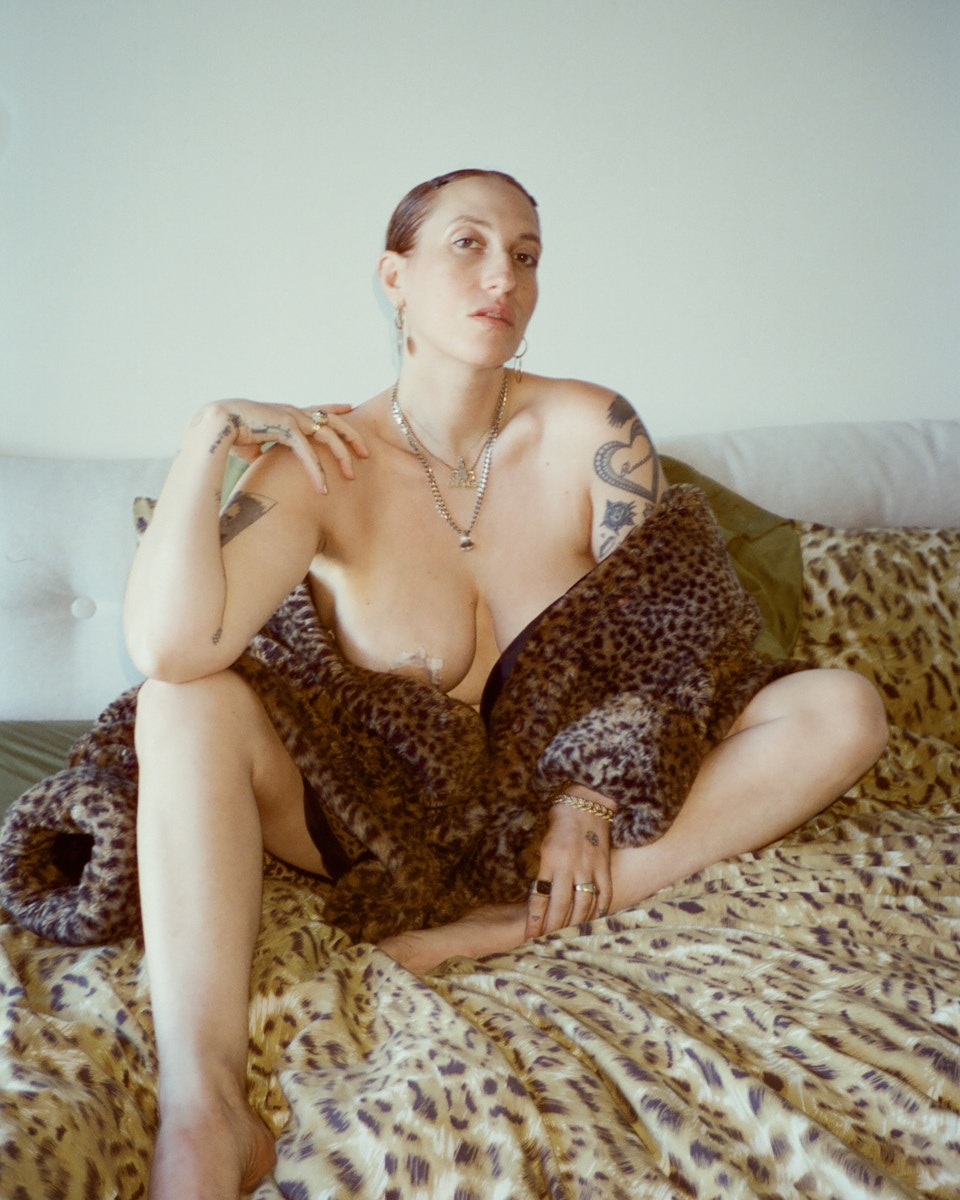
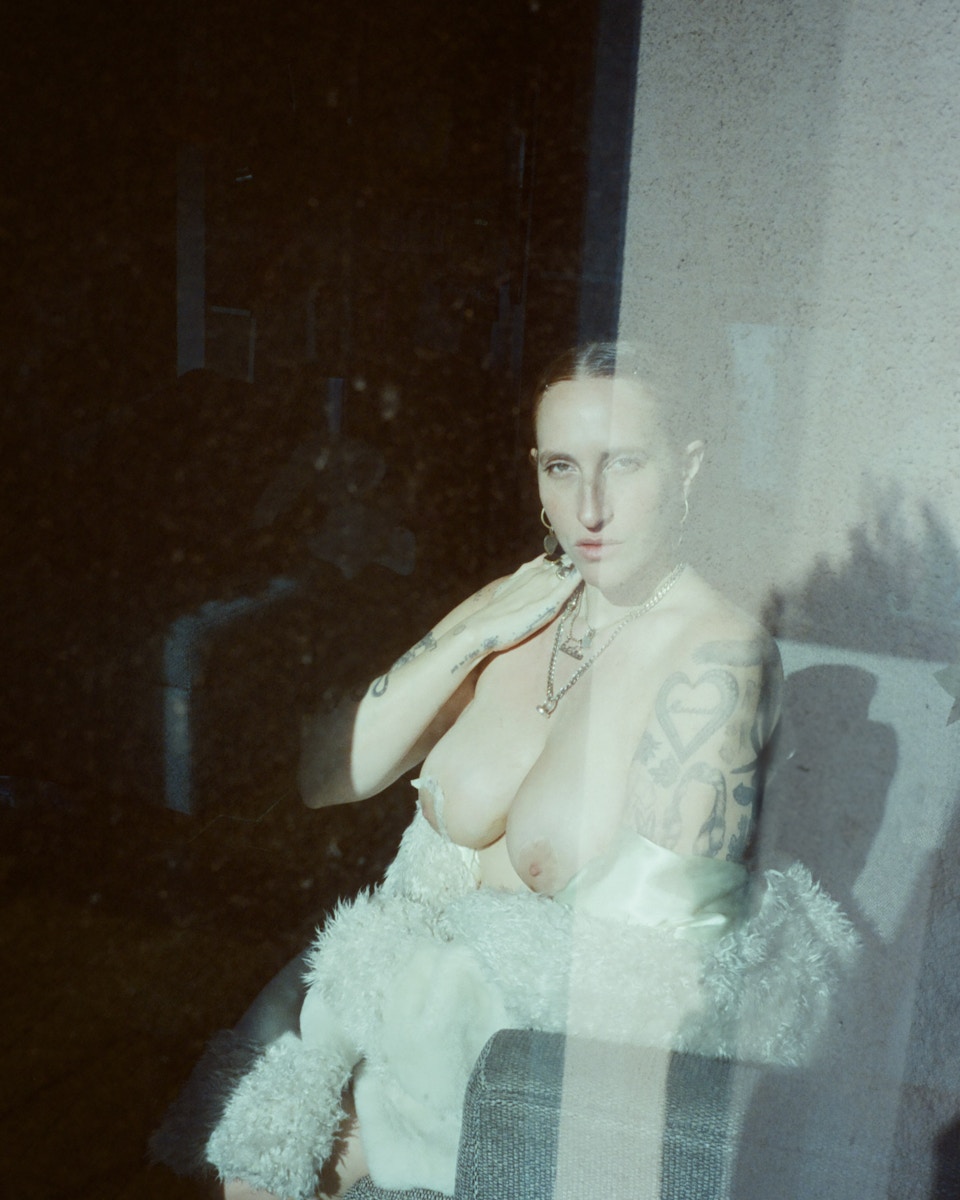
Abbe Ertel Magid is a graduate of Savannah College of Art & Design, a former WME filmworker for Motion Picture Literary agent Mike Eisner and was the right-hand woman to Jake Scott at Ridley Scott Creative Group / Scott Free before opening shop at The Powers Collective over a decade ago. She and her team, based in LA, NY, Paris & London have developed over one thousand commercial, music video, feature, television and experiential projects since The Powers Collective’s inception and continue to produce award-winning pitch decks for top creatives in the field. She is currently a professor at School of Visual Arts and lives in Brooklyn with her partner and her son, Wilde.
Randy Stulberg: Executive Producer, Director, and Photographer with 10+ years of experience creating visually striking, emotionally resonant storytelling across documentary, branded, and editorial platforms. From prestige series to social-first campaigns, her work is grounded in curiosity, humor, cultural insight, and cinematic craft. She served as the showrunner of Hamilton’s Pharmacopeia, Vice TV’s highest-rated series, and executive produced the Emmy-nominated Golden, featuring Olympic gold medalist Sunisa Lee for Peacock. Recent work includes directing a campaign for MilkPEP and New York Magazine, and executive producing a branded series for Mailchimp. Her career began with directing and selling independent feature documentaries, with films streaming on The Sundance Channel, PBS, and Netflix. She currently has two premium documentaries in development and continues to explore identity, eroticism,play, and intimacy through her ongoing portrait photography practice.